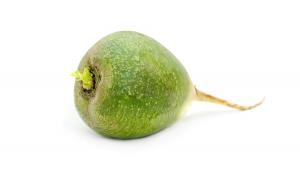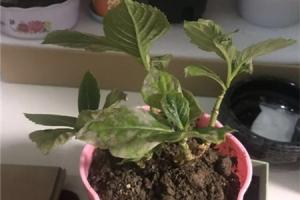Are Palm Tree Plants Toxic to Cats?
Many pet owners love to decorate their homes with indoor plants. However, before bringing any new plant home, it's essential to research its toxicity to pets, especially cats, who love to chew on plants. One of the popular indoor plants is the palm tree. But, are palm tree plants toxic to cats? Let's find out.
Palm Tree Plants Overview
Palm trees are a common sight in tropical and subtropical regions. They are often grown for their attractive foliage and ornamental value. Palm trees have lush green blades that make them an excellent indoor decoration option. They are low maintenance and can thrive in many light conditions, making them suitable for most households.
While these plants are not known to be inherently toxic, some species of palm trees may contain compounds that can cause harm to cats. These compounds can vary depend on the species and the cat's sensitivity. Therefore, it's essential to understand the specific species of palm tree that you have in your home and avoid allowing your cat to ingest any part of the plant.
Toxic Compounds in Palm Tree Plants
Some palm tree species contain toxic compounds such as cycasin and sago palm. These toxic compounds are present in all parts of the plant, including the leaves, berries, and trunk. If your cat ingests any part of the plant, it can cause a range of symptoms, including vomiting, diarrhea, lethargy, and even liver failure in severe cases.
Cycasin, the primary toxin present in sago palm, can be fatal when ingested by cats. The toxin is absorbed in the gut, which can lead to gastrointestinal symptoms such as vomiting and diarrhea. Cycasin also results in liver damage, which can cause liver failure in some cats. Therefore, if you suspect your cat has ingested any part of the palm tree plant, it's essential to seek veterinary help immediately.
Symptoms of Palm Tree Plant Poisoning in Cats
It's crucial to recognize the signs of palm tree plant poisoning in cats to act quickly and prevent further damage. Some symptoms of palm tree plant poisoning in cats include:
Vomiting
Diarrhea
Lethargy
Loss of appetite
Abdominal pain
Jaundice
Tremors
Seizures
If any of these symptoms manifest in your cat after ingesting any part of a palm tree plant, take them to the vet immediately. Early intervention can save your pet's life.
Prevention and Treatment
The best way to prevent palm tree plant poisoning in your cat is to avoid keeping this plant in your home. However, if you have palm tree plants in your home, make sure they are out of your cat's reach. Place them in high places or hanging baskets to keep them away from curious cats. Additionally, keep an eye on your cat when they're around the palm tree plant, and if they show any signs of interest, discourage them with verbal cues or give them toys to distract them.
If your cat ingests any part of the palm tree plant, seek veterinary help immediately. The vet may induce vomiting to remove the plant from your cat's stomach or give medication to manage the symptoms. Severe cases may require hospitalization for supportive treatments such as fluids and monitoring.
Conclusion
In summary, palm tree plants are not inherently toxic to cats. However, some species such as the sago palm can contain toxic compounds that can harm cats. It's crucial to understand the specific type of palm tree you have in your home and keep it out of your cat's reach. If your cat ingests any part of the palm tree plant, seek veterinary help immediately to prevent further damage and save your pet's life.

 how many times do yo...
how many times do yo... how many planted tre...
how many planted tre... how many pine trees ...
how many pine trees ... how many pecan trees...
how many pecan trees... how many plants comp...
how many plants comp... how many plants can ...
how many plants can ... how many plants and ...
how many plants and ... how many pepper plan...
how many pepper plan...































